New app here to help Aussie farmers looking for love
He’s not keeping count, but 36-year-old Rhys reckons he’s had about 30 first dates from dating apps since he moved back to the bush from Melbourne four years ago. In the end, it paid off.
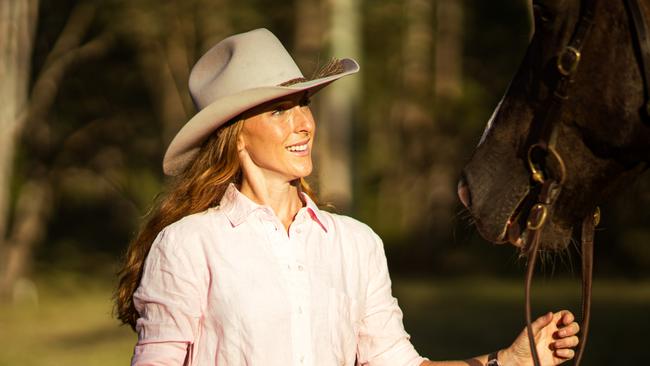
He’s not keeping count, but 36-year-old Rhys reckons he’s had about 30 first dates from dating apps since he moved back to the bush from Melbourne four years ago. In the end, it paid off: this farmer found his partner four months ago so he won’t be trialling a new app, Howdy, designed to solve a big problem in rural Australia.
But it’s likely thousands of others will sign up in the search for sex, love and romance when distance is a deal breaker, country towns are filled with couples and many people face a choice between singledom or a move to the city.
Rhys, who has asked that we don’t use his surname, has university degrees in engineering, agricultural science and business and worked for Qantas and Boeing before he decided to move back to the family farm an hour from Wagga Wagga in NSW.
“The first thing to say about the country is that it seems to me most people are already in relationships,” he says. “At least in my town, my generation who stayed all settled down, had a partner and in most cases had kids. There wasn’t an active single scene.”
He hit the apps but many women disappeared when they learned how far he lived from a town. “It was an immediate deal breaker that I live that far out,” he says. “Even the ones I did go on dates with, a couple of them indicated the isolation of regional living meant I was in the too-hard basket. Why date someone an hour away when you can date someone who’s a five-minute drive away? I get that.”
His new partner, Sarah, lives in Albury-Wodonga, a 50-minute drive from his home. He spends the weekends in town, and they see each other one night a week, but they realise distance is an issue. Says Rhys: “Sarah doesn’t really want to live out here, and that’s fine for now, but you know, down the track if we want to have kids …”
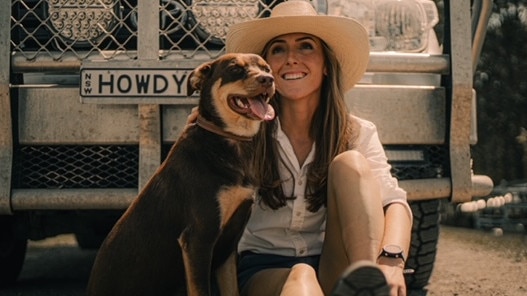
For Mia Ryan, the 22-year-old from the Upper Hunter in NSW who has poured $200,000 of borrowed funds into developing the app, Howdy is about bringing the country to the country, introducing people who understand the way of life of those in the bush.
She’s used dating apps but says: “It’s really turned me off because most people on the apps are town people and they just don’t understand my lifestyle. They don’t understand that dark and rain, hail or shine, I’m still out there doing horses or cattle or whatever. I really would like to meet someone who’s passionate about the same sort of things as I am.”
Her chances may just have improved with the app she developed this past year while training horses on a family property and studying online for a bachelor of agriculture. Howdy launched on Friday. It’s designed for farmers (plus other people working in the bush) and people who want to meet farmers and Ryan is hoping to sign 5000 to 10,000 hopefuls in the first month. The first week is free, then it costs $7 a week. Whether it works is to be seen, but Ryan has big plans, including launching in the US.
The angle she’s pushing is that everyone on her app has self-filtered: “You can be in the city and if you’re keen to meet a farmer, you can sign up, but it stops it from being about city people meeting each other.”
Ryan says country people who are keen to date struggle with the distance. “Even if you’re only half an hour from town, the last thing you feel like doing at the end of the day is going to a pub,” she says. “The fact that not many people understand your lifestyle is a huge roadblock. There’s all the small talk and there’s a lot of texting, and people in the bush don’t have a lot of time for that.” If you live hours from your date, you need a day to go and meet them, stay over for a night, “but you’re leaving livestock behind, you have a crop ready to be harvested”.
Has it always been this way or is it worse as rural Australia becomes more prosperous but less peopled?
Says Ryan: “I don’t know if it’s getting worse. There’s obviously staff shortages and people are struggling to find more people to work on their farms. My grandma talks about that all the time, saying ‘I met my husband at the country ball’. Those social gatherings really have died out, which is a shame.”
The hollowing out of smaller remote towns has had an impact on social life in the bush. It’s not just the exodus from the bush to the city: the digital technology that has allowed for so much more connection also has had a downside, according to farmer Rhys, who argues social media reduces face-to-face encounters. He is pleased at improvements to internet access in the bush, but says: “Even though it’s hollow, and everyone’s feeling more alone, at the same time, (social media) meets an instantaneous need which means they don’t feel the need to go to the local pub or join a local sports team.”
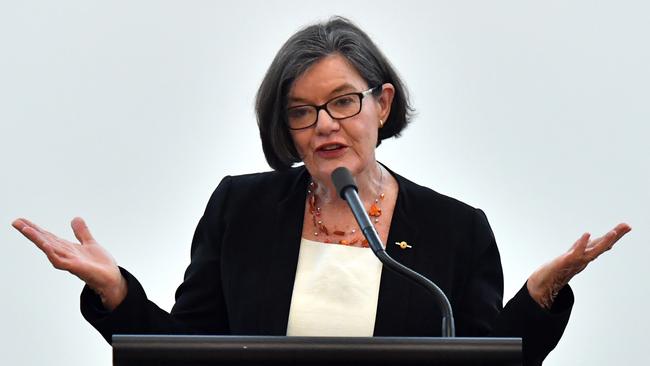
Cathy McGowan, chair of AgriFutures Australia, cites recent research in regional Victoria that asked young people what it would take for them to live happy, fulfilled lives.
“They didn’t say dating,” says McGowan, the former independent MP for Indi in rural Victoria, “but they said finding a friendship group is the hardest thing. They said, ‘you grow up in the country, you go away travelling for work or whatever, and then you come back and you’ve changed, and it’s really hard to fit in and find a partner with similar interests’. It’s incredibly difficult, a major issue.”
Dating apps can help but McGowan wants a revival of other community-building activities such as tennis clubs. “There was something really special about tennis clubs. They seemed to offer the social cohesion you need. n some established communities, they’re still strong, but there are fewer and fewer tennis clubs.”
She likes the idea, too, that Howdy could be about making friends as well as finding romance.
“We’re a more mobile society now,” she says. “So the old way of rural communities, people knowing each other, that longevity of connectedness, has changed. We’re much more global and it’s really hard when you’re moving to a community to break in.”
McGowan recalls how 50 years ago some state education departments “bonded” new teachers to work for two or three years in the country before being assigned to a metropolitan or city school. It meant there was this “huge influx of new genetic material into the country”.
The young men checked the talent at the start of the year and many young women teachers found themselves married and on the farm before their bonded time was up. But as smaller towns lose schools and systems change, there are fewer new people to meet, or at least not single people. The tree-changers have increased but are invariably coupled and can add to the alienation of singles. The dating issue cuts across class, says McGowan. “It’s hard, whether you’re the manager or the worker, male or female, or whether you’re the truck driver.” There can be particular pain for gay or transgender people and many simply exit to the cities in search of partners. That, says McGowan, is a loss: “We want them. Otherwise, we’re just going to end up stale, white and male”
It can be tough for older single women too: fifty-five-year-old Christie’s husband died four years ago and after a period of grief, she decided it was time to meet lovers and friends. She is a highly educated professional running an agricultural consultancy in north-eastern Victoria, and living not far from a country town. She found while she had many friends, most were busy with families and partners during the week and only available for “girls nights” on the weekends. She jumped on the apps but also set up a social group for widows and widowers. “I figured if I was feeling alone, there must be other people who were feeling alone.” It filled the gap for friends but not for a relationship so it was back to the apps. But the apps aren’t easy for a 55-year old woman – in the city or country – when many men want younger women but the Christies are not interested in 70-something men.
Tom Trewavis, 33, works on a farm about 90 minutes from Mildura and says he’s never had much luck on dating apps because distance is always a problem. He’s more hopeful about Howdy because “everyone will be in the same boat”. Years ago Trewavis used to watch the reality TV show Farmer Wants a Wife. He was once approached to be on the show, but decided against it but the program, now in its 14th season, tapped into the rural dating dilemmas well before dating apps. When it launched in 2007, the bush was already changing with the disappearance of many of the dances and big social events for which country towns were once famous.
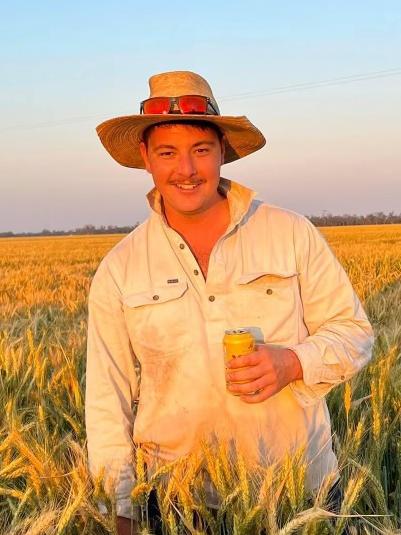
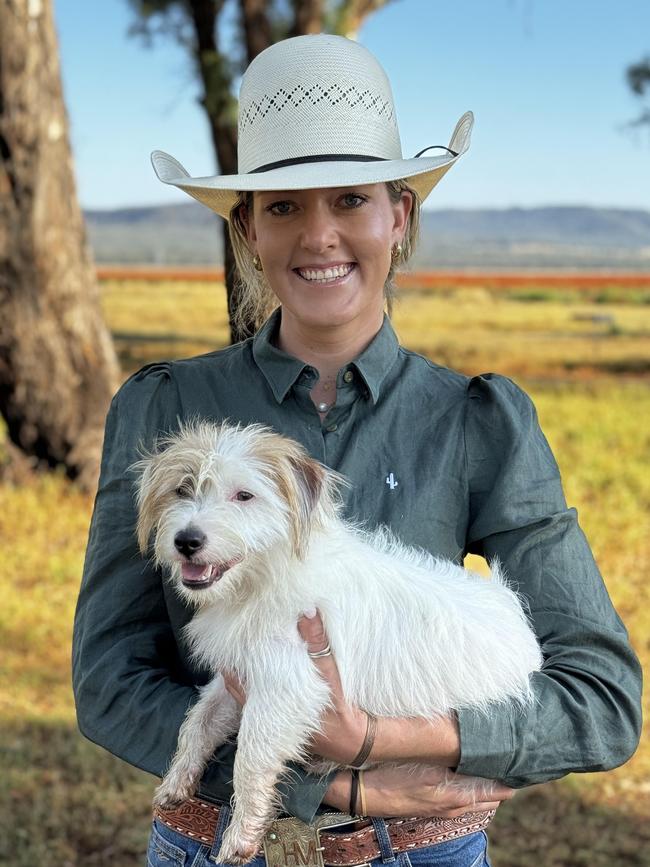
Hannah Murray, 31, lives on her family’s property about 90 minutes from Tamworth in NSW. She’s spent many years working in northern Australia and has been back home for 18 months; working on the mixed farming property and running her own rural media and marketing business. Over the years she has used Tinder and Bumble but says it’s difficult to find matches when you’re so far from big towns. She hopes Howdy might reveal more like-minded people: “I don’t necessarily need someone who’s from a farm or interested in things I’m interested in, like horses, but I think someone who has an understanding of rural life is definitely important.”
West Australian author and academic, Tony Hughes-d’Aeth, has researched the literature and history of the state’s wheatbelt and laments the loss of people.
“It’s not really rural decline in terms of production,” says the chair of Australian literature at the University of WA. “It’s that the economies of scale have led to a decreasing density of population.”
He is studying farm novels of the early 20th century from several countries, including Australia. They reveal how marriage influenced the image of the bush. The novels depict two kinds of work, he says: “There’s the work of the field, of cutting the bush to make the fields productive and then harvesting through things like droughts. The other kind of work is the work of the hearth which involves some sort of love relationship between the farmer and a woman. It included ourtship and marriage, but also production of children, and then keeping the children on the farm. It’s always been an issue: a farm wasn’t successful if it was just producing a bumper crop; you had to have a successful household.”
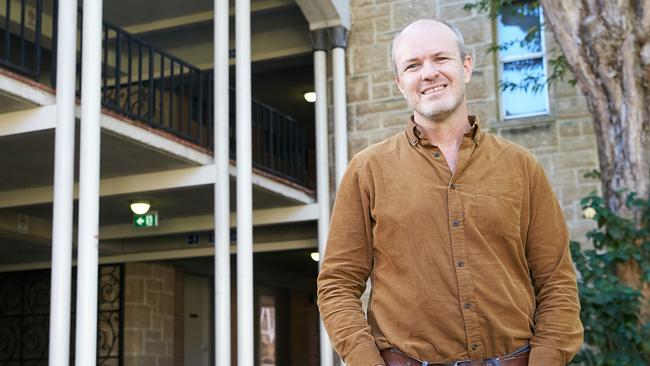
Producing children was central to identity: many early photographs show farmers holding a new baby, posing in the paddocks.” Those images show how important were children, as well as crops, not just for farmers but in shaping the broader Australian psyche.
The place of the bush has arguably declined and women, in particular, are not always prepared to drop careers to keep the hearth warm. Nor are many gay Australians prepared to stay silent, resigned to a single life.
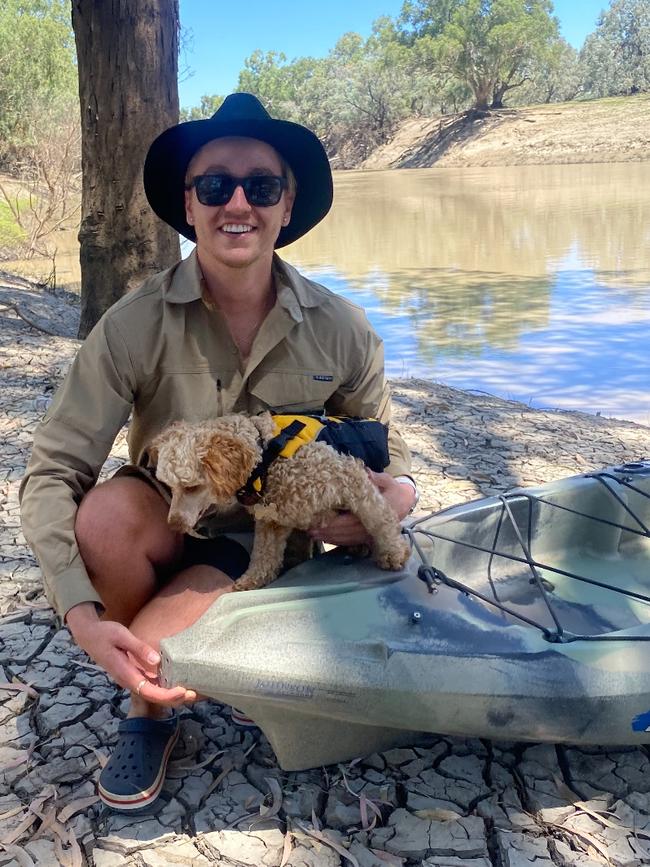
Ethan Chaffey grew up in the bush and after university went back to a property outside Tamworth. He has a great job with the NSW Department of Education but as a gay man, reckons it’s only a matter of time before he returns to a city and a larger pool. As he puts it, “it’d be nice to even have the opportunity to go on a failed date”.
The 26-year-old knows his way around the apps but says they can be exhausting: “You just keep going through the revolving door.”
Then again, he notes: “We’re pack animals, we all crave bonds, we look to build community and we look to fit in somewhere.”




To join the conversation, please log in. Don't have an account? Register
Join the conversation, you are commenting as Logout